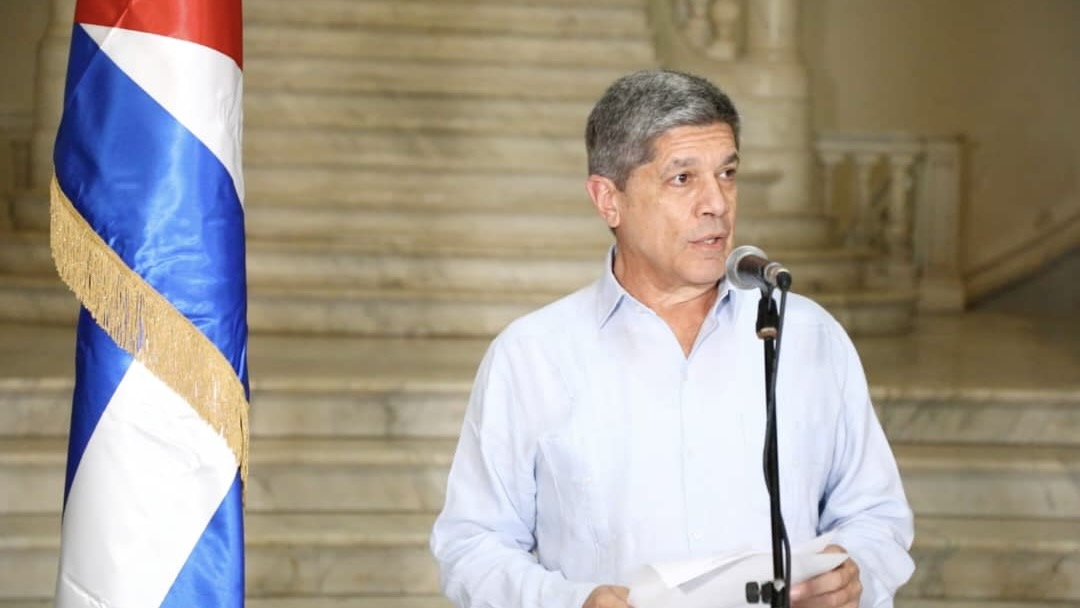Cuban Deputy Foreign Minister Carlos Fernández de Cossío told US media outlet MSNBC that two and a half years into the presidential term of US President Joe Biden, the head of state does not have the will to improve relations with Cuba.
“I don’t think there is really a will to improve the relationship and that’s why they make excuses so that we can’t improve the relationship,” said the Cuban official when asked if his country saw any signs of interest of the US government to improve bilateral relations.
In the nearly three years of the Biden presidency, US-Cuba relations have barely budged. Except for a handful of conversations on specific issues such as migration and the fight against drug trafficking in the region of the Caribbean between designated working groups, it has been far fluid communication, which many expected to see with the current US administration. The policy of economic sanctions imposed by former President Donald Trump, which Biden promised to change during his political campaign in 2020, has remained practically unchanged.
During his term, Trump reversed the rapprochement with Cuba achieved during Barack Obama’s administration, imposed 243 new economic sanctions against the island, and included the Caribbean country on the state sponsors of terrorism list. In 2019, Biden pledged to leave this policy without effect and promised a new rapprochement, something that has not happened.
“The United States, contrary to what was the official promise of this government when it came to power, has not taken steps to improve relations with Cuba and is making one excuse after another to basically maintain the policy that was put in place by the previous administration,” de Cossío said to MSNBC in the interview.
In recent months, however, there has been speculation that the two governments may be holding secret talks in an attempt to achieve some degree of rapprochement and the lifting of unilateral sanctions against the island. However, Cuban authorities have outrightly denied this.
“There are no talks on that issue,” the Cuban Deputy Foreign Minister has said, while stressing that the sanctions in question are “imposed unilaterally by the United States,” so in his view “it depends on the willingness of the US government to lift them.”
Cuba has also assured to be willing to “take steps” to show its willingness to dialogue with the current US administration -which, incidentally, is running out of time in this current mandate.
“It has to be a comprehensive conversation, a conversation that puts everything on the table to solve the problems between the two countries. It is very difficult to do that while the United States has a policy of strangling the Cuban economy”.
It is no secret to anyone that Biden’s 2020 election victory over Trump had opened the door in Cuba to hope that a new “normalization of relations” was possible. Due to his role as Vice President during the Obama administration, Biden saw the secret negotiations between the two countries up close and the eventual historic reestablishment of relations. Many believed that due to his experience, he would resume that path truncated by Trump.
Since his arrival to power, however, Biden has continually hesitated when it has come to Cuba, a gesture that many consider has to do with a bad partisan strategy in an attempt to win the approval of the most rancorous Cuban sector in the United States, especially the groups in Florida.
After the protests of July 11, 2021 which took place in several cities in Cuba, the Biden administration -which until then had not taken firm steps in any direction- decided to fully return to the confrontational rhetoric, accusing the authorities of the island of imprisoning demonstrators and violating the human rights of the Cuban people.
In that sense, Cuba considers that alluding to these issues is to continue looking for an excuse to delay a possible bilateral dialogue.
“Are they talking about prisoners? They only talk about prisoners in Cuba, they don’t talk about prisoners in the United States, which would be an issue [on which] we could have a reciprocal conversation, if the United States had the will to do so,” the deputy foreign minister argued to MSNBC.
All in all, the official insisted that “we are willing to take steps” to show the United States its willingness to sit at the dialogue table, but it must be, he clarified, “on the basis of a mutually beneficial relationship.”
This article was first published in Spanish at Claridad.





